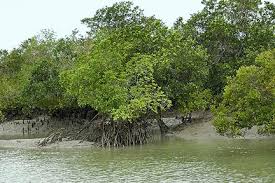They are happy because most of them have given up on having higher expectations of Bangladesh. As with many things in life - one can be happier if one cares less. This disengagement is NOT from world trends. They want to go out and meet world trends head on. Their disengagement is from trends in Bangladesh.
They want to leave the country not because of ignorance of the outside world but because of their knowledge of the world inside Bangladesh.
You could not last 5 minutes in an argument with a youngster determined to build a life abroad. And you needn't worry. As a nation we don't want or encourage young talent to stay. Which is why no one gives a damn that every year thousands of our best young people leave.
This is the Bangladesh created by the older generation who support the crimes and lies of AL and BNP. And now this same generation blames the younger generation. No wonder our youth have disengaged.
Political activists aren't worth the spit of our young people. Our young people go abroad and lead more productive lives in safer environments with a better ethical setting.
Parents and grandparents don't encourage their kids to return even if it breaks their hearts.
Because of our politics.
Even all the AL who faint at the sight of Joy know that what they like about Joy would not be there if Joy had spent his life in Bangladesh mixing in AL circles. Dhekthe hobeh na kar nathi? Ji na. Dhekthe hobeh kuthai manush hoilo.
42% want to leave their country - its a good sign. It indirectly shows the rejection of the Bangladesh of AL and BNP.
Even AL and BNP activists abroad don't return to Bangladesh when their party wins power!
--- In
alochona@yahoogroups.com, Isha Khan <bdmailer@...> wrote:
>
> ------ Forwarded message ----------
> From: Javed Ahmad
>
> They are 'happy' because they are not aware of many of the world trends
> and events that is taking shape and how they might affect them. And they
> 'want to leave the country' because they do not know what 'freedom' means as
> the world is gradually turning into a prison. Our present young generation
> are the believers of "ignorance is bliss". Soon they would come to know the
> truth and will be totally clue less. Perhaps then they would come to
> understand that this life is not a bed of roses.
>
> --- On *Sun, 6/13/10, Isha Khan <bdmailer@...>* wrote:
>
>
> From: Isha Khan <bdmailer@...>
> Subject: Re: Happy youth: 42% wants to leave the country
> To:
> Date: Sunday, June 13, 2010, 2:28 AM
>
>
> *Most youths are happy, but half of them want to go abroad*
>
> *British Council* survey reveals
>
> Eighty eight per cent of young people in Bangladesh are either happy or very
> happy while 42 per cent young people want to go abroad, said a survey report
> conducted by the British Council.
>
> On the findings of the study, Foreign Minister Dipu Moni said: "The total
> number of young people in Bangladesh is around 55 million. Among this 88 per
> cent are happy or very happy while 1.6 per cent are unhappy. It's a positive
> sign for our country. As the young generation is happy they can bring a
> better future for the country."
>
> She said 76.5 per cent of youth believe women should play a greater role in
> decision making affecting their community while 73 per cent of them own a
> mobile phone. Both are good signs as we are going on our way of fulfilling
> Vision 2021, she added.
>
> The foreign minister said this while speaking at the launching ceremony of
> the survey report titled "Bangladesh: The Next Generation" at a city hotel
> on Saturday.
>
> British High Commissioner Stephen Evans said: "This survey demonstrates the
> need and opportunities offered by mobilising one of the Bangladesh's
> greatest assets--the 55 million young people between the ages of 15 and 30
> and pointed to the significance of active citizenship in building
> communities and improving livelihood to take Bangladesh forward."
>
> British Council Director Charles Nuttall OBE recognised the transformational
> power of young Bangladeshis and added: "We hope the report will promote
> discussion on how the immense social and human capital that Bangladeshi
> youth have to offer can be harnessed."
>
> The survey involved hour long interviews with 2,167 males and females aged
> between 15 and 30, which the British Council claims were representatives of
> the demographics of young people in Bangladesh.
>
> The survey found that young people had an overall positive view of the
> country's progress - with 79 percent believing that "the country is heading
> in the right direction". However, 60 percent of the interviewees said that
> they felt that corruption will or may get worse in the next five years.
>
> They ranked bribery as the second most important factor, next to education,
> in securing a job- with 12 percent believing it to be the major factor.
>
> It also found that only 15 percent thought that student politics is a good
> thing. Another 36 percent said student politics has a detrimental effect on
> educational institutions.
>
>
http://fe-bd.com/more.php?news_id=102985&date=2010-06-13>
> On 6/13/10, Isha Khan
> <bdmailer@...<
http://mc/compose?to=bdmailer@...>>
> wrote:
> >
> > *British Council* survey on bangladesh youth
> >
> >
http://www.dailyjanakantha.com/news_view.php?nc=15&dd=2010-06-13&ni=21648> >
>



